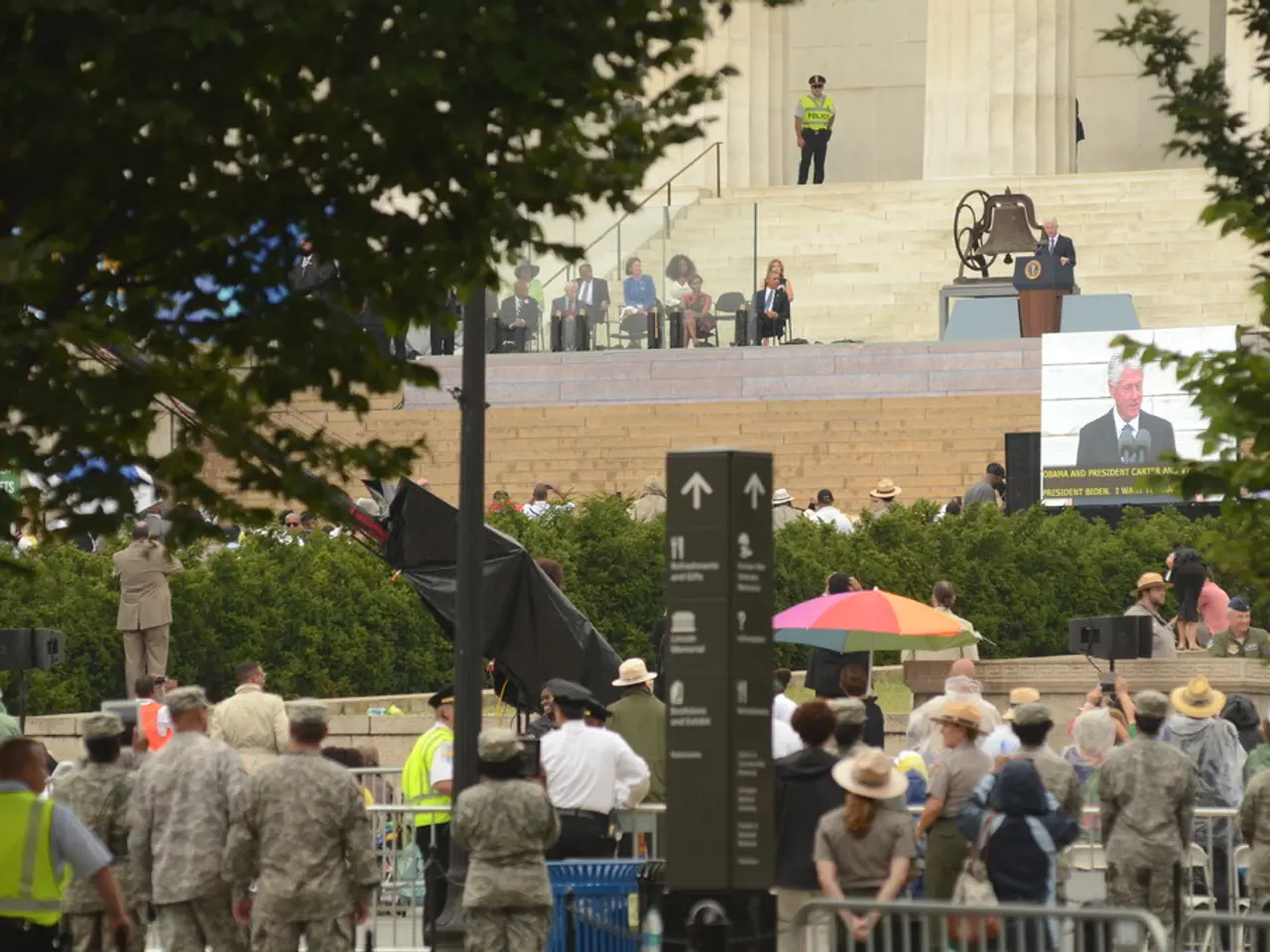Iranian legislature endorses measure halting collaboration with International Atomic Energy Agency
Taking Matters into Their Own Hands: Iran Parliament's Decision to Suspend Cooperation with IAEA
Iran's Parliament, also known as Majles-e Shurâ-ye Eslâmi, decided in a heated session to withdraw cooperation with the International Atomic Energy Agency (IAEA), the UN's nuclear watchdog. This decision comes amidst escalating tensions and recent attacks on Iranian nuclear facilities [1][2][3][4].
The drastic move was unanimously backed by Iranian lawmakers, awaiting final approval from the Guardian Council - an unelected body appointed by Iran’s Supreme Leader - before becoming law.
The legislation imposes stringent restrictions on future oversight by the IAEA. Any future inspections must first receive approval from Iran’s Supreme National Security Council [1].
Iranian Parliament Speaker Mohammad Bagher Qalibaf, as quoted by state media, claimed that the bill aims to speed up Iran's civilian nuclear program. He slammed the IAEA for their lack of formal condemnation of the recent attacks on Iranian nuclear facilities, accusing them of selling their international credibility for "next to nothing"[1].
Qalibaf further stated that as long as the security of Iran's nuclear sites remains unguaranteed, cooperation with the IAEA will be halted, and the pace of peaceful nuclear activities will escalate [1].
This week, the general outlines of the bill were approved by the National Security and Foreign Policy Committee of the parliament. Committee spokesman Ebrahim Rezaei revealed that the draft includes measures to suspend the installation of surveillance cameras, halt routine inspections, and cease periodic reporting to the IAEA [2].
If ratified, this bold decision may lead to further deterioration in Iran's relations with international nuclear oversight bodies, complicating attempts to revive broader diplomatic engagement with Western nations.
Meanwhile, funeral ceremonies for top military leaders and scholars killed during the ongoing conflict with Israel will take place this Saturday [5].
Crucial Points to Ponder
- Limited Oversight: By halting cooperation, Iran will significantly reduce international scrutiny of its nuclear activities, allowing it to progress its nuclear program with fewer constraints and more secrecy [1][3].
- Nuclear Strides: Iranian officials have hinted at expediting their peaceful nuclear program since halting cooperation, enriching uranium up to 60%, close to weapons-grade levels [3].
- NPT Review: Senior Iranian leadership has suggested reconsidering Iran’s stance towards the Nuclear Non-Proliferation Treaty (NPT), citing the failure of the treaty to safeguard Iran's interests, despite its compliance [2][3].
- Worsened Regional Tensions: The suspension of cooperation with the IAEA adds fuel to the fire of intensifying regional conflicts and further complicates diplomatic efforts for nuclear non-proliferation and conflict resolution in the Middle East [1][2][3].
- Deepened International Isolation: Iran’s decision to suspend cooperation with the IAEA is likely to increase distrust and further isolate Iran from the global community, making diplomatic solutions to the nuclear issue even more challenging [2][3].
[1] https://apnews.com/article/middle-east-israel-military-defense-iran-africa-34c60e6b5d281cde20c61bc98b64f43b[2] https://iranprimer.usip.org/blog/2023/jul/12/iran-s-nuclear-program-state-play[3] https://www.nytimes.com/2023/07/11/world/middleeast/iran-nuclear-parliament-agency-israel.html[4] https://www.reuters.com/world/middle-east/irans-parliament-senior-lawmaker-say-passed-bill-halt-cooperation-iaea-2023-07-11/[5] https://www.aljazeera.com/news/2023/7/12/irans-parliament-suspends-cooperation-with-iaea-over-nuclear-program[6] Source for military leaders and scholars' funeral: Iran state media, unofficial translations (no official independent confirmation available)
The parliamentary decision to halt cooperation with the International Atomic Energy Agency (IAEA) could potentially lead to a reduction in international oversight over Iran's nuclear activities, allowing for more secrecy in its nuclear program, a point of concern in the realm of politics and general news, particularly war and conflicts.
The Iranian parliament's move towards limited IAEA oversight may further aggravate regional tensions and complicate diplomatic efforts for nuclear non-proliferation and conflict resolution in the Middle East, a development significant for politics and general news on war and conflicts.





